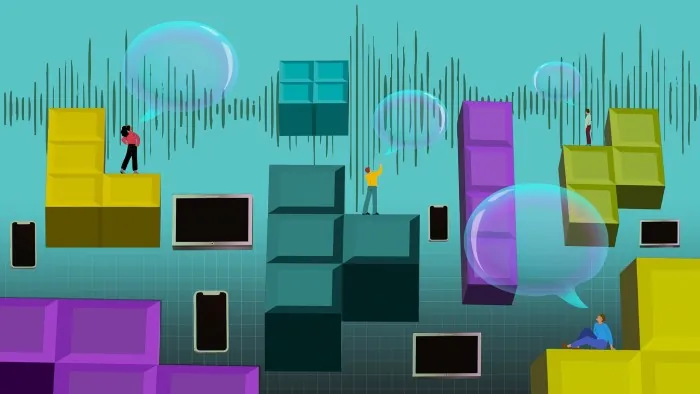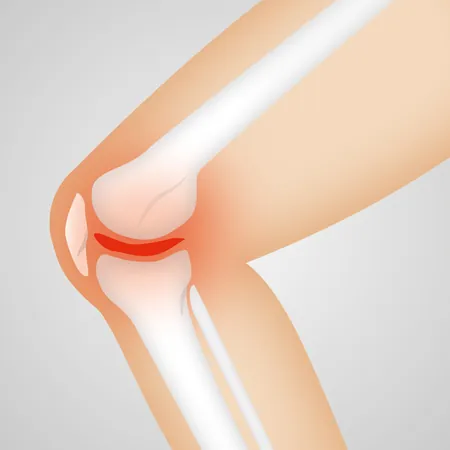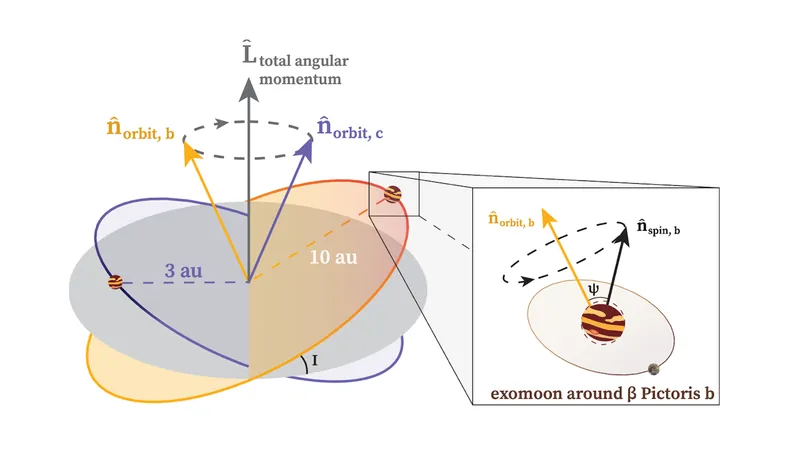
Game On: How Tech Innovations Like Tetris Are Revolutionizing Mental Health Treatment
2024-12-18
Author: Yu
Irene Jimenez Padilla faced haunting traumatic flashbacks from her time as a nurse during the COVID-19 pandemic, overwhelmed by memories of patients enduring agonizing deaths at London's Guy’s and St Thomas’ hospitals. These relentless images replayed in her mind like an uninvited guest, buzzing incessantly. However, a surprising turn of events occurred when she discovered a groundbreaking therapy modeled after the cult classic puzzle game, Tetris.
Initially skeptical, Padilla found herself captivated by the therapeutic potential of Tetris, where players fit colorful blocks together. After just a few weeks of engaging with the game, she experienced a remarkable transformation. Although the harrowing memories were still there, they no longer tormented her day-to-day life. “It was so effective,” she reflects, marveling at the relief it provided. “All those faces, all those noises — they are gone.”
This innovative approach is part of a broader movement in mental health care embracing technology to address the skyrocketing demand for effective treatments. Established therapies, typically limited to pharmaceuticals and traditional talk therapy, are increasingly seen as inadequate for many patients. Miranda Wolpert, director of mental health at the Wellcome Foundation, emphasizes that a new generation of technology-driven techniques is on the horizon: “We’re now at a tipping point… The mental health interventions of five years from now could look radically different from those we use today.”
The untapped potential of tech-based treatments is evident, especially as the world grapples with escalating mental health issues that existing resources cannot adequately support. For instance, conditions such as schizophrenia remain notably challenging to treat, and traditional psychotherapy methods can be expensive, time-consuming, and difficult to measure in terms of effectiveness.
The slow pace of new drug development has compounded the crisis. The recent approval of the schizophrenia drug KarXT marked a significant milestone; it was the first novel treatment for the disorder in over seven decades. In contrast, the excitement surrounding psychedelic therapies, such as MDMA for PTSD, has faced regulatory setbacks.
As the US National Institute of Mental Health notes, technology is spearheading a new frontier in mental healthcare, with over 400 grants awarded for tech-enhanced interventions. David Crepaz-Keay from the Mental Health Foundation highlights how big data and artificial intelligence can drive early interventions, making mental health care more accessible and personalized.
One particularly innovative method gaining traction is Avatar Therapy, designed for individuals who experience distressing auditory hallucinations. Patients create digital representations of the voices they hear and engage in therapeutic conversations with these avatars under the guidance of a therapist. Early research has shown promising results, including improved mood and reduced intensity of symptoms.
Moreover, novel therapies are revisiting established treatments. For example, transcranial direct current stimulation (tDCS) employs low-level electrical currents to target brain activity linked to severe depression. Recent studies revealed that this form of therapy could serve as an effective, less invasive option for at-home care.
Attention to lifestyle factors, such as sleep, is also reshaping mental health care. Researchers are exploring the connection between sleep disruption and psychiatric disorders, advocating for sleep optimization as a preventative strategy against mental health issues.
One of the most compelling aspects of this tech-led transformation is the incorporation of Tetris into therapeutic settings. The game, designed by Alexey Pajitnov over 40 years ago, captivates players’ focus, which can divert their attention from traumatic memories. Dr. Emily Holmes, who studies this therapy, explains that the visual tasks required by Tetris can render trauma memories more malleable and less intense, creating an opportunity for healthier memory reconsolidation.
Sophie, a British doctor, initially doubted the efficacy of Tetris therapy when she enrolled during her struggle with anxiety linked to her experiences during the pandemic. However, after only a few weeks, she was amazed by the change it brought about in her life. She could now talk about her traumatic experiences with newfound composure, acknowledging, "I have to admit that it did work even though I wasn’t expecting it to.”
As technologies like Tetris therapy continue to develop, their potential to enhance accessibility and effectiveness in mental health care is truly groundbreaking. These innovations may revolutionize how we approach mental health treatment, showing that sometimes, simple solutions could lead to significant breakthroughs. “You don’t need medication for that, you don’t need a psychologist to talk about your life,” Padilla states, succinctly capturing the essence of this new wave of therapy. “It’s so simple — just sitting in front of a computer and playing Tetris.”
With further research and validation, innovative therapies such as Tetris could inspire a new era of mental health treatment, opening doors for countless individuals seeking solace and healing.




 Brasil (PT)
Brasil (PT)
 Canada (EN)
Canada (EN)
 Chile (ES)
Chile (ES)
 España (ES)
España (ES)
 France (FR)
France (FR)
 Hong Kong (EN)
Hong Kong (EN)
 Italia (IT)
Italia (IT)
 日本 (JA)
日本 (JA)
 Magyarország (HU)
Magyarország (HU)
 Norge (NO)
Norge (NO)
 Polska (PL)
Polska (PL)
 Schweiz (DE)
Schweiz (DE)
 Singapore (EN)
Singapore (EN)
 Sverige (SV)
Sverige (SV)
 Suomi (FI)
Suomi (FI)
 Türkiye (TR)
Türkiye (TR)